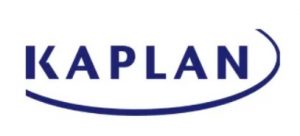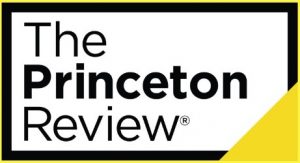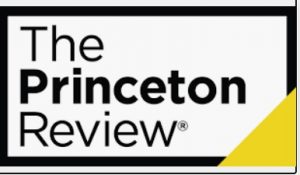Kaplan vs Princeton Review GRE Prep Course 2023: Who Is The Best?
Preparing for the GRE is not the easiest thing. Finding a prep course that fits your strengths, weaknesses, and goals on the test is not a walk in the park either. This is why we will compare what many consider two of the best GRE prep courses online: Kaplan and The Princeton Review.
Which one has more to offer? What makes each prep course unique? We’ll answer all of these questions and determine which GRE prep course is the best for you. We’ll also take a closer look at each course’s curriculum and pricing. Plus, I’ll give you a sneak peek of what you’ll get from both courses by providing screenshots of the course.
Ready? Let’s start.
Kaplan vs Princeton Review GRE: The Basics
Both Kaplan and Princeton Review are elite test prep courses. Throughout the years, they have catered to thousands of students’ test prepping needs, whether they’re preparing for the GRE, SAT, GMAT, MCAT, or other standardized exams.
Princeton Review
Princeton Review’s GRE prep course offers a wide range of options and packages for students. Whether you’re looking for a refresher course or a more extensive prep, you would find a package suitable for you on the packages they offer.
One course The Princeton Review offers is The Quick Study, an online course with a couple of practice tests and drills suitable for students who need a refresher before the GRE. They also offer more extensive options like their live or tutoring packages.
Kaplan
Kaplan’s options for GRE are not very much different from Princeton Review’s. They have live courses, self-paced courses, and tutoring services, too. They even provide a test-day experience, in which you get to take a full-length GRE in a setup similar to the actual test day.
Here’s a table comparing the two courses to give you a solid grasp of what you’re going to get from each:
| Kaplan | Princeton Review | |
 |
 |
|
| Live instruction (online and in-person) | Yes | Yes |
| Self-paced | Yes | Yes |
| Tutoring services | Yes | Yes |
| Practice questions | 5000+ | 2500+ |
| Practice tests | 7 | 8 |
| Subscription length | 6 months | 4 months |
| Video Lessons |
Yes | Yes |
| Score improvement guarantee |
Yes | Yes |
| Student support options |
||
| Free trial |
Yes | Yes |
As you can see in the table, Kaplan and Princeton Review are quite similar in terms of inclusions, offers, and features. Major differences between the two include access duration and the number of practice questions, which I’ll both expound on later in this review.
If you want to know which prep course is more worth taking, stay with me further in this article as we take a closer look at both Kaplan and The Princeton Review:
- Curriculum and Effectiveness
- Pricing
- Ease of use
- Student Reviews
Kaplan vs Princeton Review GRE: Curriculum and Effectiveness
Live course
In terms of live courses, the most comparable packages are the Live Online package of Kaplan and the Fundamentals package of Princeton Review. Kaplan’s Live Online offers two packages: the regular Live Online and the Live Online Plus. In Live Online Plus, you’ll get 3 hours of 1-on-1 tutoring and 2 GRE books. The Plus package, however, costs $300 more than the regular package.
Whether you choose Kaplan’s Live Online or Live Online Plus Package, you’ll get 21 hours of live instruction and 40+ hours of videos in the GRE channel. The number of instruction hours is slightly less than Princeton Review’s Fundamentals course, which provides 24 hours of live instruction and 180+ hours of total instruction.
Both prep courses have great quality live instruction, and their price options for live courses are pretty close. With that being said, I’ll give the slight edge to Princeton Review. Aside from having more hours of live instruction, Princeton Review’s class sizes are relatively small. Other than that, I find both courses’ live instruction really effective.
Winner: The Princeton Review
Self-paced course
Both Kaplan and Princeton Review have excellent self-paced GRE courses. Their difference leans more toward the duration access and the number of practice questions.
In Kaplan’s self-paced course, you’ll get 5000+ practice questions. This includes the Qbank, a massive storage of practice questions in which you can sort out questions depending on the level of difficulty and topic.
Also included in Kaplan’s self-paced course are 180+ hours of total instruction and practice and the Official Test Day Experience. You can access Kaplan’s self-paced course for 6 months.
Princeton Review’s self-paced course provides only 2500+ practice questions, which is about half of Kaplan’s number of practice questions. It also provides less duration of access to the course. Princeton Review gives only 4-month access to their self-paced course, 2 months less than Kaplan, which provides 6-month access.
Winner: Kaplan
Practice Tests
Kaplan provides 7 full-length practice tests, while Princeton Review provides 8. Princeton Review gives 1 practice test more than Kaplan, but I give the slight edge to Kaplan. That’s because Kaplan provides the Official Test Day Experience, which allows a student to take a full-length GRE with test-day conditions.
Not many GRE prep courses provide the Official Test Day Experience, so it’s definitely a great feature from Kaplan. Taking a full-length practice GRE on test day conditions, such as the timing and venue, will give you a good amount of confidence on the actual GRE.
Although Princeton Review provides more practice tests, I give the edge to Kaplan for the Official Test Day experience.
Winner: Kaplan
Books
Princeton review’s materials and resources are purely online. That means all the practice questions, tests, and drills are accessible online. They, however, provide Quant and Verbal manuals on some of their packages.
Kaplan, on the other hand, provides outstanding hardcopy GRE prep books, mainly on their Plus packages. The books they provide are GRE Math Foundations and GRE Advanced Math, which will cost you $600 if you buy them separately online without the course. These books are a huge upside and an upgrade for your GRE prep. That’s why getting a Plus Package from Kaplan is more worth it.
Winner: Kaplan
Score Guarantee
If you want to boost your GRE score, a score guarantee is what you need. Fortunately, both Kaplan (1) and The Princeton Review (2) provide a higher score guarantee. Both courses guarantee that you’ll improve your GRE score after taking their course. Otherwise, you will be eligible for a refund or you can retake the course for free.
Both courses have higher score guarantees, but Princeton Review offers another unique score guarantee.
Princeton Review offers the GRE 162+ Course, their most expensive package. If you choose this option, Princeton Review guarantees you that you’ll score on both Quant and Verbal will be 162 or higher, which is considered a competitive score for the top 10 schools.
This score guarantee comes at a high price. The Princeton Review’s GRE 162+ course costs around $2,300.
Again, both courses provide higher score guarantees, but since Princeton Review offers a package with a particular score guarantee, I give them the slight edge.
Winner: Princeton Review
Kaplan vs Princeton Review GRE: Pricing
Kaplan GRE
| Course | Price | ||||||||
| Self-guided | $449 | ||||||||
| Self-guided Plus | $699 | ||||||||
| Live Online | $999 | ||||||||
| Live Online Plus | $1299 | ||||||||
| In-Person | Not available as of the moment | ||||||||
| Private Tutoring Online |
|
The Princeton Review GRE
| Course | Price | ||||
| Self-paced | $399 | ||||
| Fundamentals | $1199 | ||||
| GRE Quant 162+ | $1499 | ||||
| GRE 162+ | $2299 | ||||
| Private Tutoring |
|
In terms of pricing, Kaplan and Princeton Review do not have so much difference. Their self-paced and live online courses have really close prices. However, Kaplan’s Plus courses are a little expensive. Considering, Plus packages include a tutoring session and 2 GRE prep books, I think the pricing is just fair.
Princeton Review, on the other hand, has 162+ packages, which are also expensive options. These packages, as mentioned earlier, guarantee a 162 or higher score on the GRE. That makes the high price more understandable.
Since Kaplan and Princeton Review have very close pricing with regards to the regular packages, the two courses are tied in this category.
Winner: Tie
Kaplan vs Princeton Review GRE: Ease of use
Let’s look at some screenshots I took from both courses for you to have a solid grasp of what you’re going to get.
Above is a screenshot of Kaplan’s interface. It has a simple design and is very easy to use. The thing is, it does not have a big difference with Princeton Review’s interface. The curriculum for the section you are studying is already listed. Plus, you get to see how many minutes it will take to finish a video lesson or practice test.
Here is a screenshot of Princeton Review’s interface. As I said, it’s similar to Kaplan’s. Its curriculum is presented in a folder-style format, so you can easily find the lesson you are looking for. What I found impressive in Princeton Review is the Essentials-Lessons-Drills concept.
Each chapter or module starts with videos that teach you the essential concepts you have to know before starting the main lesson. After the main lesson, you can then measure your understanding with the DrillSmart Technology (3).
Video Lessons
When I said that Kaplan and Princeton Review are similar courses, I wasn’t exaggerating. These two courses are almost the same in terms of style, particularly in their video lessons.
The screenshot above is from Kaplan’s video lesson on Functions. I like how Kaplan delivers its lessons. It’s easy to follow and they take you through the step-by-step process in getting the correct answer to a problem. The instructor uses a whiteboard with the problem displayed. One thing they could have done, however, is to make the pen’s color a little darker.
The Princeton Review’s video lessons are also really good. The way they write on the board is the same. In the screenshot above, you’d think that the instructor is writing backwards on a transparent board. What’s actually happening was the instructor was writing normally, but the video was flipped so the student can see the properly what was being written.
I like how The Princeton Review’s videos are delivered. The instructors are straight to the point and will run you through the step-by-step process of the solution.
Both courses’ video lessons are good and effective, so this is a tough call. With that being said, I’m not a fan of Kaplan’s luminous marker ink. Plus, I find The Princeton Review’s practice problems more effective by a very small margin.
Winner: The Princeton Review
Practice Tests
The screenshot above is from Kaplan’s practice test. The font used on the practice test is readable and clear. Plus, it provides an on-screen calculator for the Quant section.
What about The Princeton Review’s practice test? It’s the same with Kaplan.
Above is a screenshot of The Princeton Review’s practice test. As you can see, the question and choices are clearly displayed. Like in Kaplan’s practice test, you can use a calculator as you are answering the Quant section. You can also choose if you want your test timed or not.
Winner: Tie
Kaplan vs Princeton Review GRE: Student Reviews
Throughout the years, Kaplan and Princeton Review have helped thousands of students reach their GRE goals. Both courses receive great reviews, and there are a lot of stories from students about how they were able to reach their desired score with the help of Kaplan or Princeton Review.
After considering multiple reviews, including mine, I give The Princeton Review the slight edge. The margin is pretty slim, but it received higher ratings for students. Plus, it has been successful in helping students reach the score they wanted, particularly with the GRE 162+ course.
Winner: The Princeton Review
What makes each prep course unique?
- For Kaplan:
-
- Qbank: The Qbank is a huge storage of practice questions for the GRE that you can segregate to the level of difficulty and topic. Plus, you can mark a question as saved and go back to it later on.
-
- Official Test Day Experience: Kaplan gives their students a full-length practice GRE with realistic test-day conditions. You’ll be taking the practice test with the GRE timing, venue, and setup. This is a good way to boost your confidence before taking the actual GRE.
- For The Princeton Review:
-
- DrillSmart Technology: This technology makes your prep experience better fit to your existing skills and knowledge. You will take a diagnostic test to determine the difficulty level that you can handle. You are then provided with the appropriate practice quizzes and drills. As you improve and progress through the course, the level of difficulty also increases.
-
- Connects Q&A (app): The Princeton Review developed a mobile app to help out students with questions at any time of the day. This app is mostly ideal for Math and Science topics. All you have to do is take a photo or a screenshot of the problem you’re having trouble with and the app will provide the step-by-step solution to the problem.
Kaplan vs Princeton Review GRE: Which one is the best?
Here is a summary of everything that has been covered:
| Area | Winner |
| Live course | Princeton Review |
| Self-paced | Kaplan |
| Practice Test | Kaplan |
| Books | Kaplan |
| Score Guarantee | Princeton Review |
| Pricing | Tie |
| Video Lessons | Princeton Review |
| Practice Test ease-of-use | Tie |
| Student Review | Princeton Review |
For this review, I vote The Princeton Review as the winner. I just find it’s live instruction and video lessons more effective and well-constructed. The margin between the two GRE prep courses, however, is pretty slim. Whichever you choose between Kaplan and The Princeton Review will give you the confidence you need for the GRE test day.
Frequently Asked Questions
References
- https://www.kaptest.com/hsg
- https://www.princetonreview.com/legal/guarantee-better-scores
- https://origin-www.princetonreview.com/grad/gre-honors-course?ceid=tersh-nav-pt-course












